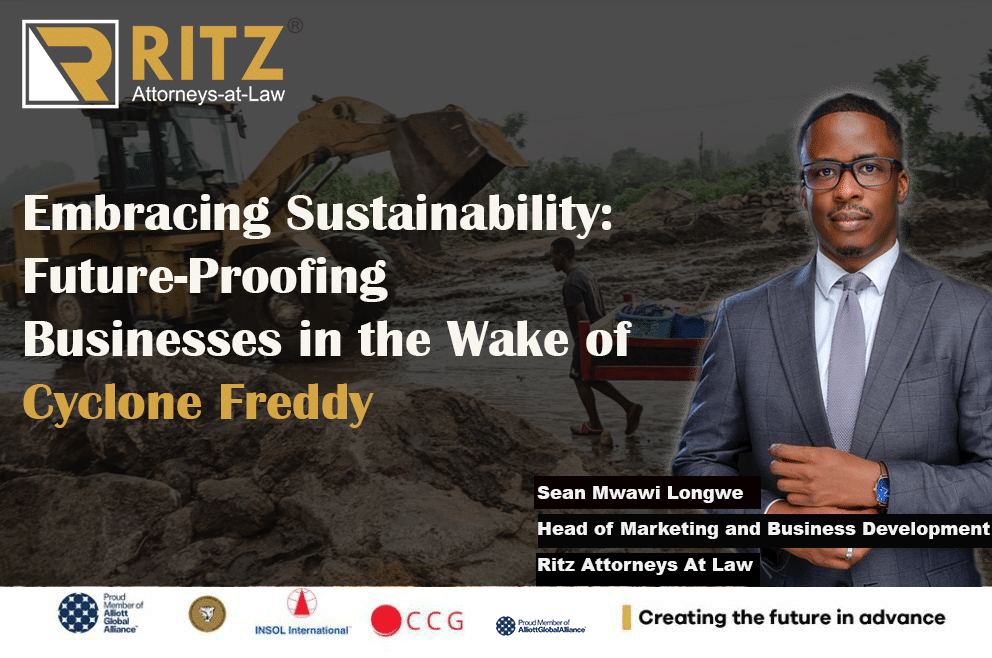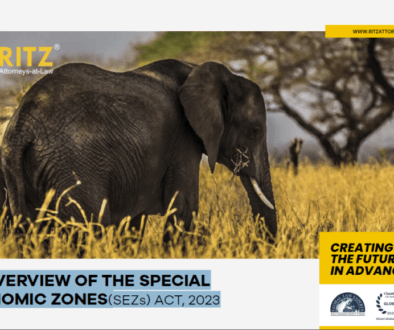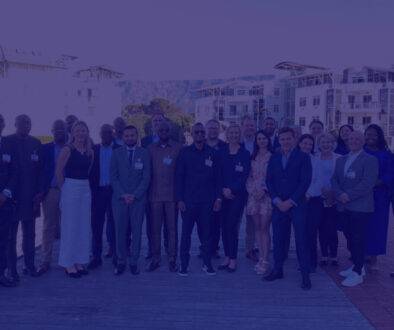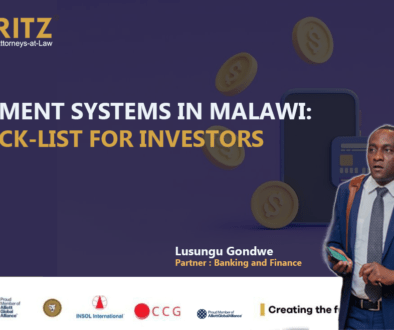Introduction:
Cyclone Freddy’s devastating impact has served as a wake-up call for businesses in Malawi, highlighting the urgent need to incorporate sustainability strategies into their future plans. As extreme weather events become more frequent and severe due to climate change, organizations must recognize the importance of mitigating environmental risks, embracing sustainable practices, and future-proofing their operations. By proactively integrating sustainability into their strategic plans, businesses can not only safeguard themselves against future disruptions but also contribute to a more resilient and environmentally responsible world.
1. Recognizing the Urgency of Sustainability:
Cyclone Freddy’s destructive force and the subsequent economic, social, and environmental repercussions underscore the urgent need for businesses to address sustainability. Climate change is no longer a distant threat but a present reality, demanding immediate action. It presents with us for the long run. Organizations must acknowledge that sustainable practices are not merely altruistic endeavors; they are essential for long-term survival, profitability, and reputation. The President of the Republic of Malawi, Dr Lazarus Mcarthy Chakwera recently stated that as a nation we have lost about $500 million. It is epochal for strategic decision making.
2. Integrating Sustainability into Strategic Planning:
To future-proof their operations, businesses need to embed sustainability into their core strategies. This involves setting clear sustainability goals aligned with the United Nations Sustainable Development Goals 2030 (SDGs) and developing a roadmap for achieving them. From reducing greenhouse gas emissions and conserving natural resources to promoting ethical supply chains and fostering social inclusivity, every aspect of the organization should be scrutinized for its sustainability impact.
3. Embracing Renewable Energy and Circular Economy:
One crucial aspect of sustainable business practices is transitioning to renewable energy sources. Investing in solar, wind, or hydroelectric power can significantly reduce our carbon footprint while ensuring a stable and cost-effective energy supply. Currently we only have 20 megawatts generated from solar in Golomoti but we need more. Malawi’s 2023-24 budget has a component of duty-free electric cars and accessories as one of the ways of combating climate change. Furthermore, businesses must start to adopting circular economy principles, such as recycling, reusing, and reducing waste, can minimize environmental degradation and create a more efficient, resilient business model.
4. Promoting Stakeholder Engagement:
Sustainability efforts are most effective when businesses actively engage with their stakeholders, including customers, employees, suppliers, and local communities. By involving stakeholders in the decision-making process, organizations can gain valuable insights, build trust, and foster long-term partnerships. Additionally, transparent communication regarding sustainability initiatives can enhance brand reputation and attract environmentally conscious consumers. We now live in an open world where information is available at a click of a button, consumers can relate to issues happening in other parts of the globe and are demanding from the business.
5. Emphasizing Resilience and Risk Management:
Sustainability strategies play a vital role in enhancing a company’s resilience to future shocks and disruptions. Businesses should conduct comprehensive risk assessments, identifying vulnerabilities including legal issues related to climate change and other environmental factors. Implementing risk management measures, such as diversifying supply chains, investing in infrastructure resilience, and implementing disaster response plans, can significantly reduce the impact of future cyclones and other natural disasters.
6. Capitalizing on Innovation and Technology:
Innovation and technology are powerful tools that can drive sustainability efforts and future-proof businesses. Embracing digital transformation, developing eco-friendly products and services, and leveraging data analytics for sustainable decision-making are just a few ways companies can harness the power of innovation. Collaboration with startups such research institutions such as #MUBAS, #MUST, and sustainability-focused organizations can foster a culture of innovation and position businesses at the forefront of sustainable practices.
Conclusion:
Cyclone Freddy has served as a powerful reminder of the urgent need for businesses to integrate sustainability into their strategic plans. By adopting sustainable practices, organizations can future-proof their operations, mitigate environmental risks, and contribute to a more resilient and responsible future. Embracing renewable energy, circular economy principles, stakeholder engagement, resilience planning, and innovation will position businesses as leaders in sustainability while creating long-term value and positive impacts on the planet. The time to act is now, as the collective efforts of businesses can shape a sustainable and prosperous future for Malawi.




